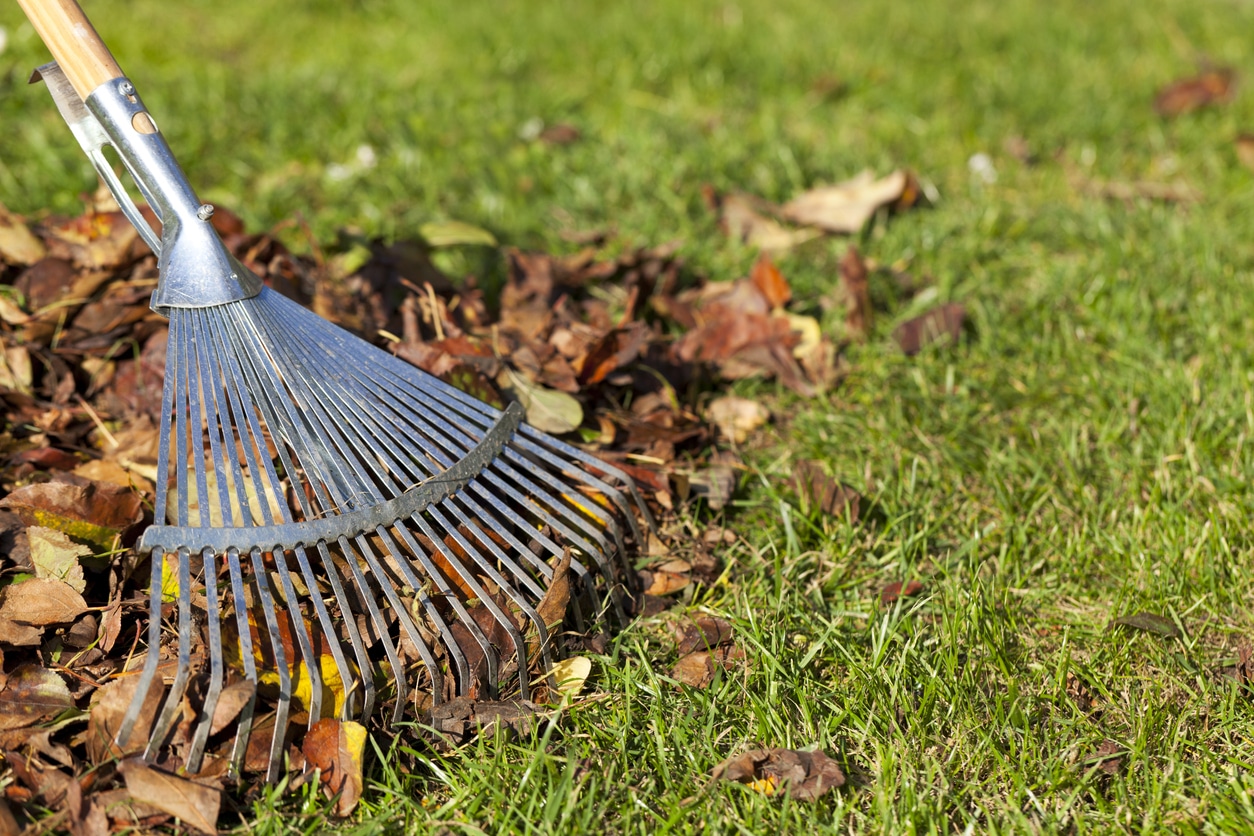Fall brings cooler temperatures, days in the Daniel’s Farm pumpkin patch and lots of falling leaves. Unfortunately, those falling leaves need to be cleared eventually. For the 3-10% of people with mold allergies, that chore can be a little daunting.
How Can Raking Trigger Mold Allergies?

Damp leaves are the perfect host for mold growth. When you rake, the mold releases spores that can inflame allergies, leading to symptoms like:
- Coughing or sneezing
- Itchy or watery eyes
- Congestion
- Itchy throat
- Wheezing
- Skin rash
How Can I Protect Against Mold Spores?
Consider a few of the following tips to limit your exposure to mold spores:
- Rake early. Raking early helps prevent built-up leaves from growing mold. Aim to rake about once a week. People with a lot of trees in their yard may need to rake more often, while people with fewer or no trees might be able to get away with just one raking day for the whole season.
- Rake at the right time. In addition to raking early and often, aim to rake on dry days with very little wind.
- Cover up. Wearing a face mask, goggles, long-sleeve shirts and pants will help prevent mold spores from entering your system or irritating your skin. They can also protect against excess dust or leaf debris.
- Shower after raking. Mold and other debris can stick to your clothes and hair. Shower and change into clean clothes after raking to prevent allergens from spreading throughout your home.
If your allergies are severe, it’s worth considering hiring someone to do your yard work for you.
Will Allergy Medication Help?
Nasal corticosteroids, antihistamines, oral decongestants and decongestant nasal sprays can provide temporary symptom relief.
Immunotherapy is another option for symptom relief. Over the course of three to five years, your allergist will administer increasing doses of the mold allergen. As the dose increases, your sensitivity to the allergen should decrease. Three to five years sounds like a long commitment, but the symptom relief is well worth the effort.
For more information on managing your mold allergies this fall, contact Midwest ENT Centre today.